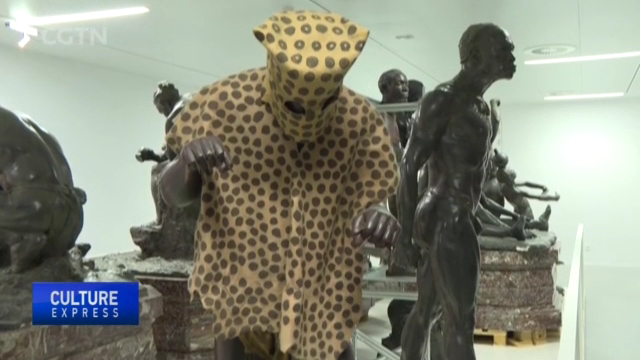
19:37, 12-Dec-2018
Belgium Africa Museum: Relaunch mired in colonial-era controversy
Updated
19:02, 15-Dec-2018
03:06

The former Royal Museum of Central Africa in Belgium is reopening amid a storm of controversy after a massive five-year refurbishment. It will now be called the Africa Museum, but the relaunch comes amid fresh debate in Europe about how European countries should address their colonial histories. CGTN's Jack Parrock reports.
Much like some of the displays at the Africa Museum, Belgium has a violent colonial past. Responsible for millions of deaths and human rights atrocities at the turn of the 20th century in what was then known as the Congo free state.
And the Africa Museum near Brussels, which was originally opened in 1898, is apologizing for not having confronted the truth properly before.
GUIDO GRYSEELS DIRECTOR, AFRICA MUSEUM "As a museum, as an institute we also assume our responsibility for the fact that for more than 60 years we've diffused, we've disseminated an image of a superior western way of thinking to African cultures and African way of thinking."
The museum is reopening after an 84 million dollar refurbishment which has seen the building of a brand new reception and education centre. Exhibitions which depict Africans as primitive or lesser have either been removed, or placed into a special room which highlights the museum's previous faults. It says it wants to change the storyline and tell it from an African perspective.
JACK PARROCK BRUSSELS, BELGIUM "The museum may have been at pains to insist it's changing the way it looks at Belgium's colonial past but that's not been enough to persuade the Belgian King to attend any of the launch events. A palace spokesperson saying that the King doesn't want to be mixed up in ongoing debates."
The Belgian monarchy has never apologized for the atrocities committed in the Congo Free State. And the double L symbol of King Leopold the second is all over the listed building of the museum. His brutal regime is blamed for the crimes.
Most of the artefacts in the museum come from the former Belgian colonies of Congo, Burundi and Rwanda. And after French president Emmanuel Macron announced he felt it was wrong that over 80 per cent of Africa's historical items are held in museums in Europe, African groups here are reasserting pressure for artefacts to be returned.
MIREILLE-TSHEUSI ROBERT BAMKO ASSOCIATION "There is no decolonization without restitution. Nowadays the question of decolonization is linked to the question of reparations. The terrible things that were done during colonization must be rectified. And I think the museum has completely ignored the notion of reparations."
As an institution, the Africa Museum says it's now involving African people far more in its research and wants to place itself in the centre of reassessing Belgium's role in colonial history. A place for reflecting on the lasting harm done to society by the regime.
Jack Parrock, CGTN, Brussels.

SITEMAP
Copyright © 2018 CGTN. Beijing ICP prepared NO.16065310-3
Copyright © 2018 CGTN. Beijing ICP prepared NO.16065310-3